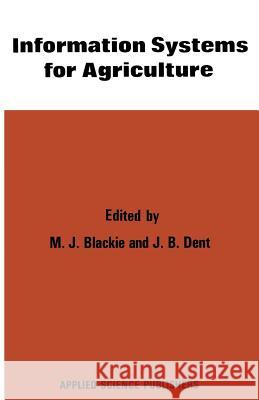Information Systems for Agriculture » książka
Information Systems for Agriculture
ISBN-13: 9789401167390 / Angielski / Miękka / 2012 / 176 str.
The decision-making process in agriculture rests squarely on information available to farmers, entrepreneurs and policy-makers. Information can best be considered as a productive resource, potentially limiting and influencing the efficiency of production, marketing, processing and administration. Yet it is not an aspect of agriculture which has been isolated as an autonomous study area. Indeed, at the production level, the role of information hardly has been defined and in practice the processing of raw data to provide useful information is informal and crude. Exceptions do exist, however, and at all levels in the industry it is possible to detect a ground swell of demand for improvement. Even where serious and successful attempts have been made to establish formal information systems, as, for example, in the case of the agricultural economics profession in the 1920s and 1930s for national policy-making purposes, obsolescence has occurred, making the systems inefficient. Information systems are expensive to establish and to operate, and where, owing to development of the industry or change in the type of decision which must be made or advances in the technology of information systems, inefficiencies have become obvious, re-evaluation is a matter of urgent concern. The concern is the greater as agriculture develops and control of production and marketing becomes more critical: under these conditions, appropriate decision-support through formal information systems becomes the keystone for a viable enterprise.











